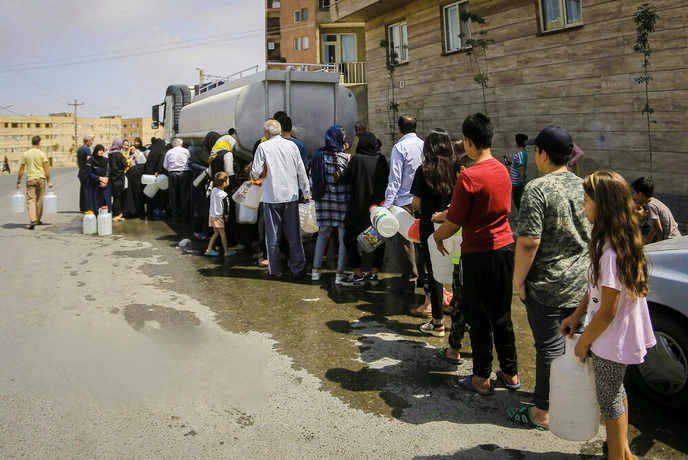In the midst of an unprecedented water crisis, Iranian President Masoud Bazkiaan warned that the capital Tehran could soon become uninhabitable, emphasizing that the country is facing a critical situation that requires considering radical solutions, including the possibility of relocating the capital to another site.
Bazkiaan stated: "The situation is serious, and Tehran already has no water," adding that the government is exploring exceptional options due to the rapid deterioration of conditions.
Iran is suffering from a suffocating water crisis that extends to more than twenty out of thirty-one provinces, as reported by the official Iranian news agency, IRNA, with one of the country's largest water reservoirs expected to completely dry up in the next four weeks.
Seven major reservoirs have recorded a decrease in water levels to below 10%, while 80% of water reservoirs across the country are nearly empty.
Climate experts affirm that the country will not see an improvement in its water resources for at least two months, awaiting a decrease in the crisis severity towards the end of the year due to rainfall.
Meanwhile, the Iranian President criticized the policies of previous governments, accusing them of ignoring repeated warnings and failing to take necessary measures to address the drought that has accumulated its effects over the years.
The escalating crisis not only threatens the capital's population of around 15 million people but also signals a wide-ranging environmental, economic, and social crisis that could extend throughout the country if urgent intervention is not taken.

